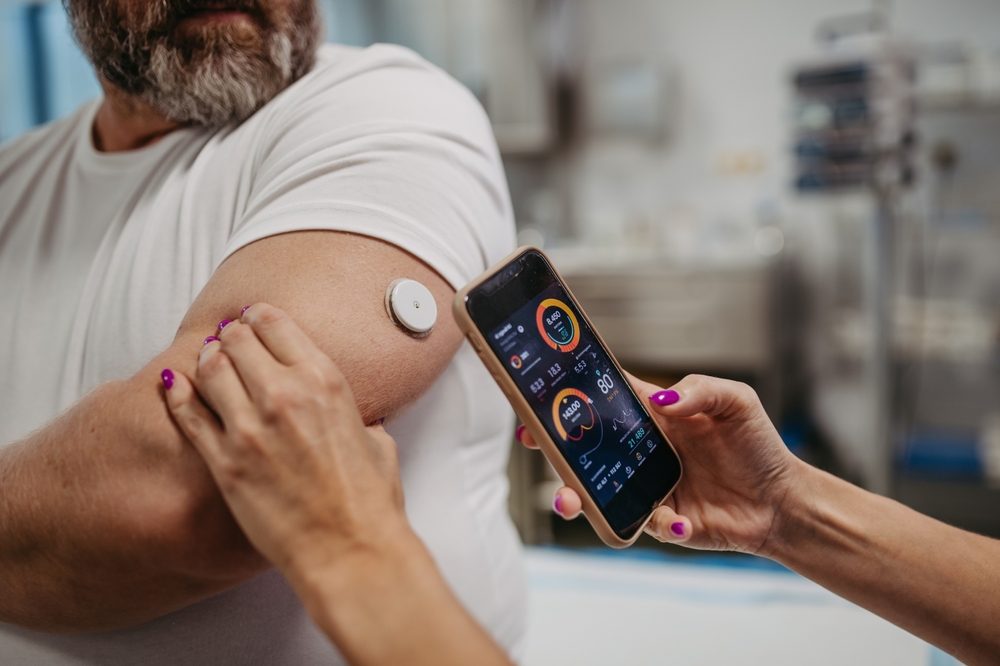New Research Confirms the Top Priority for Reducing Risk of Type 2 Diabetes…And It's Not Diet

To reduce the risk of diabetes in patients, many integrative practitioners will focus on diet. While that’s a great place to start, new research demonstrates that there is something even more important. Sleep.
“This latest study helps confirm that the old advice of ‘eat less and move more’ is not enough guidance in today’s busy, stressed-out world,” explained Beverly Yates, ND, who is an internationally acclaimed diabetes expert. “Glycemic regulation and having consistently healthy blood sugar levels are highly sensitive to the quantity and quality of sleep that a patient gets. Both the amount of sleep and the depth of sleep impact glycemic control.”
The recent JAMA cohort study looked at whether there was an association between healthy eating, sleep duration, and the risk of developing type 2 diabetes. The researchers found that people who consistently got less than six hours daily had a significantly higher risk of developing type 2 diabetes, even among those who maintained a healthy diet.
“I like that this study had such a large cohort that included almost a quarter of a million people,” said Yates, who created the Yates Protocol to help people manage their blood sugar. “This study affirms what I have seen in my clinical work.”
This latest study is consistent with a 2023 review of 11 studies showing that poor sleep quality and lower sleep duration were associated with increased risk of insulin resistance, increased glycated hemoglobin, and metabolic syndrome.
Importance of Sleep
The researchers of this latest study explain how lack of sleep may contribute to type 2 diabetes, including impaired cellular insulin sensitivity, skeletal muscle energy metabolism shifting toward non-glucose oxidation, increased sympathetic nervous system activity, and altered gut microbiota.
“I tell my patients that every night when they go to sleep, it's a wonderful invitation for the body, mind, and soul to hit the reset button," said Yates, who is the founder of NaturalHealthcare.com, the nation’s leading online resource that helps people with prediabetes and type 2 diabetes. “Because we are in a fasted state while sleeping, blood sugar levels can be reset to a healthy range and then stay there. This doesn’t happen when we don’t get enough sleep.”
Additionally, Yates has found that many of her patients with sleep apnea eventually develop type 2 diabetes, and she feels this is due to the disruptions of sleep caused by sleep apnea. Research does demonstrate that sleep apnea increases a patient’s risk of developing type 2 diabetes.
An Integrative Approach
Yates recommends that her patients go to bed at a similar time each night and wake up at a similar time each morning, including on the weekends. She also helps them create a calming wind-down routine that sets the stage for sound sleep. Yates has also used melatonin in her practice.
“I have found melatonin to be effective at improving both quality and quantity of sleep," said Yates. "Just like anything else, melatonin does not work for all people in all situations, and its effectiveness can vary; however, in general, I will often recommend a time-release phyto-melatonin formula to help my patients sleep through the night.”
The use of melatonin gummies with children was featured in JAMA last year with negative reports about safety. The Council for Responsible Nutrition refuted the JAMA research letter, explaining that it had flawed methodology and confused adult and pediatric products.
According to a recent review, not only is melatonin safe, but it also has positive health effects beyond sleep. “While melatonin was initially understood to only regulate circadian rhythms, recent studies indicate that it has a far-reaching effect on various organs and physiological systems such as immunity, cardiovascular function, antioxidant defense, and lipid hemostasis,” concluded the researchers.
“I know melatonin has become controversial, but as far as an option for sleep, it remains one of the safest,” explained naturopathic endocrinologist Jaclyn (Chasse) Smeaton, who is a fertility expert with Hello Fertility. “Melatonin has undergone extensive safety studies in children, even among the most vulnerable neonates.”
In addition to utilizing natural substances to enhance both the quality and quantity of sleep, integrative practitioners have many successful sound sleep strategies. This latest research helps confirm that by focusing on sleep, patients will be able to reduce their risk of developing type 2 diabetes.




















SHARE